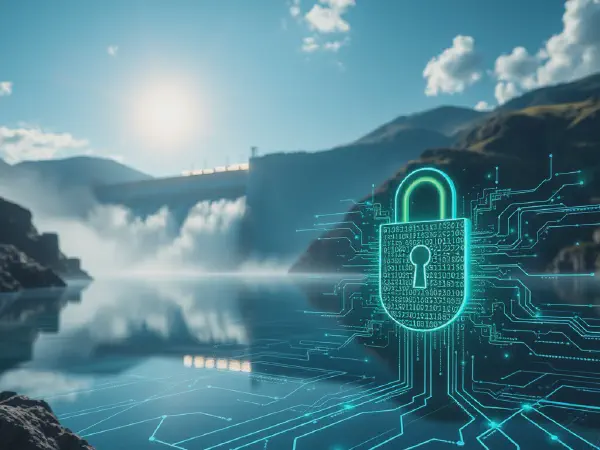Protect Your Business with Muskrat Falls Cybersecurity Solutions

Muskrat Falls Cybersecurity Protecting Your Business Online
In today's digital age, businesses face an ever-growing threat from cyberattacks. Effective cybersecurity is essential not only for protecting sensitive data but also for maintaining customer trust and brand reputation. The Muskrat Falls project is a prime example of how robust cybersecurity measures can safeguard business operations in the face of increasing cybercrime. Muskrat Falls Cybersecurity Protecting Your Business Online emphasizes the critical importance of implementing stringent cybersecurity strategies across all sectors.
The reliance on digital tools and online platforms has never been higher, making businesses more vulnerable to cyber threats. In this context, Muskrat Falls Cybersecurity Protecting Your Business Online involves understanding these threats, establishing preventive measures, and creating a resilient infrastructure that can withstand attacks. This article will cover various aspects of cybersecurity strategies, technology solutions, employee training, incident response planning, and compliance with regulations to help businesses fortify their defenses effectively.
Cybersecurity is not merely an IT issue but a fundamental component of business strategy. As we delve into Muskrat Falls Cybersecurity Protecting Your Business Online, we'll explore how organizations can enhance their cybersecurity posture through effective risk management and proactive measures. Leadership involvement, investment in technology, and a well-educated workforce play crucial roles in creating a secure business environment that is less susceptible to cyber threats.
Moreover, with the rapid evolution of cyber threats, continuous monitoring and improvement of cybersecurity strategies are vital for keeping pace. Muskrat Falls Cybersecurity Protecting Your Business Online will also discuss adaptive security measures reflecting the dynamic threat landscape, ensuring your business remains resilient and ready to respond to incidents as they occur. The collaboration between government, private enterprises, and cybersecurity experts will also be highlighted, showcasing how these partnerships can drive innovations in security practices.
In summary, protecting your business online is an ongoing endeavor that requires diligence, expertise, and the right tools. Muskrat Falls Cybersecurity Protecting Your Business Online serves as a reminder of the need for comprehensive and proactive cybersecurity strategies that address current and future threats, ultimately empowering organizations to operate securely and confidently in a digital world.
Cybersecurity Strategies at Muskrat Falls
Understanding the threat landscape in cybersecurity is paramount for any business. Cybercriminals exploit various vulnerabilities, including software weaknesses, human errors, and system flaws. Organizations must conduct regular assessments to identify potential threats and adapt their strategies accordingly. Muskrat Falls has implemented robust threat detection frameworks, allowing for real-time monitoring and response to suspicious activities. Awareness of emerging threats such as ransomware, phishing, and insider attacks is crucial for developing a comprehensive cybersecurity strategy.
Essential cybersecurity frameworks provide structured approaches to implementing security measures within organizations. The NIST Cybersecurity Framework and ISO 27001 are examples of widely recognized standards that help businesses establish security policies that align with their needs. By adopting such frameworks, Muskrat Falls and similar organizations can ensure consistency in their security practices, facilitate continuous improvement, and promote accountability among employees and management alike. These frameworks serve as a basis for assessing vulnerabilities and implementing targeted controls.
Implementing layered security measures effectively is key to creating a strong defense. This strategy includes physical security, network security, application security, and security awareness training. Muskrat Falls has adopted a multi-layered security architecture that combines firewalls, intrusion detection systems, and encryption protocols to protect critical assets. By employing multiple security layers, businesses can minimize potential breaches and significantly reduce the likelihood of successful cyberattacks.
Tech Solutions for Enhanced Online Security
Best software tools for business cybersecurity are integral for protecting sensitive information. Utilizing antivirus software, anti-malware tools, and data loss prevention (DLP) solutions can help mitigate risks. Regular character assessments and updates to these tools are essential to safeguard against newly identified vulnerabilities. Muskrat Falls has partnered with industry-leading cybersecurity software providers to ensure comprehensive protection through the latest technological advancements.
Network security solutions tailored to your needs are critical for securing your business infrastructure. Businesses must evaluate their unique threats and vulnerabilities when designing their network security architecture. Firewalls, virtual private networks (VPNs), and segmentation play vital roles in protecting business networks. Muskrat Falls exemplifies this approach by customizing its network defenses to provide relevant and effective protection that aligns with its risk profile.
Cloud security: Protecting your data online is paramount as many organizations migrate to cloud services. Understanding the security features offered by cloud providers and supplementing them with additional tools and practices can greatly enhance data protection. Muskrat Falls has implemented robust cloud security strategies to safeguard data in transit and at rest, ensuring business continuity while leveraging the advantages of cloud computing.
Training Employees on Cybersecurity Best Practices
Effective cybersecurity training programs are crucial for ensuring employees understand their role in maintaining security. These programs should cover topics such as password management, recognizing phishing attempts, and adhering to data protection protocols. Muskrat Falls emphasizes continuous education and regular training sessions to ensure employees are informed and equipped to recognize potential threats and respond appropriately.
Creating a culture of security awareness within an organization is essential for enhancing overall security posture. Encouraging open communication about cybersecurity concerns, sharing updates on threats, and celebrating good security practices can foster a more secure environment. Muskrat Falls promotes security culture by integrating it into their business objectives, ensuring security remains a priority across all levels of the organization.
Phishing and social engineering: Employee protection methods are critical as these are common tactics used by cybercriminals. Training employees to identify and report suspicious emails, messages, or phone calls can significantly reduce the risk of successful attacks. By addressing these vulnerabilities head-on, Muskrat Falls fosters a more vigilant workforce that plays an integral part in the organization's security framework.
Incident Response Planning for Businesses
Developing an incident response plan is critical for ensuring a swift and effective reaction to cybersecurity incidents. This plan should include clearly defined roles and responsibilities, communication protocols, and a step-by-step response guide detailing how to manage and mitigate incidents. Muskrat Falls has established a dedicated incident response team trained to address various threats, ensuring a rapid and organized approach in the face of challenges.
Key components of an effective incident response team include a mix of technical and non-technical skills. Teams should comprise IT security personnel, legal advisors, communication experts, and management representatives. Muskrat Falls has integrated these diverse skill sets into its incident response team to ensure comprehensive coverage and effective communication during a cybersecurity incident. Collaboration among team members enhances overall response efforts, especially in high-pressure situations.
Real-life incident response case studies and lessons learned can provide valuable insights into effective response strategies. Analyzing past incidents can help organizations identify areas of improvement, refine their response plans, and promote proactive measures. Muskrat Falls leverages insights gained from previous experiences to continually improve its response capabilities and safeguard critical assets, demonstrating a commitment to resilience and adaptability.
Compliance and Cybersecurity Regulations
Understanding laws affecting cybersecurity practices is crucial for businesses to ensure compliance with regulatory requirements. Regulations such as GDPR, CCPA, and industry-specific mandates dictate how organizations manage and safeguard data. Muskrat Falls adheres to these regulations, ensuring that cybersecurity practices align with legal standards, thereby minimizing the risk of penalties and reputational damage.
How to achieve compliance with cybersecurity regulations involves implementing necessary policies and practices that align with legal standards. Businesses should conduct regular assessments and audits to identify compliance gaps and ensure adherence to regulations. Muskrat Falls exemplifies this approach by maintaining robust auditing processes and working closely with legal counsel to navigate complex regulatory environments.
The impact of non-compliance on businesses can be significant, resulting in financial penalties, legal liability, and reputational damage. Organizations that fail to adhere to cybersecurity regulations may face severe consequences, including loss of customer trust and operational downtime. Muskrat Falls recognizes the importance of compliance, viewing it as an integral part of their business strategy to foster trust among clients and stakeholders.
